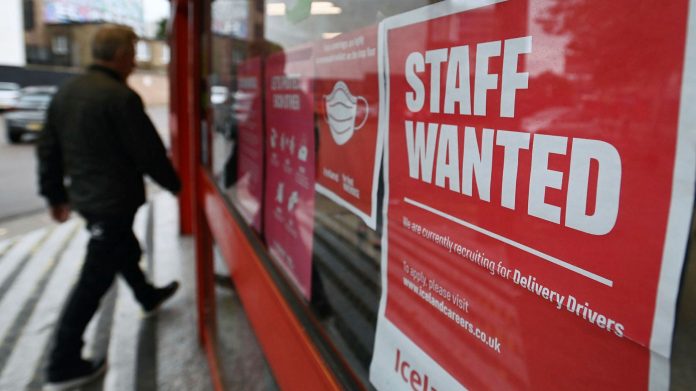Welfare system is one of the reasons why Britons manage to dodge working, the Economist informs.
From 2000 to 2019, the inactivity rate (the proportion of working-age people who are neither working nor looking for work) was one of the lowest among all wealthy countries. However, pandemic quarantines have fundamentally changed the situation.
While other economies have recovered, the inactivity rate in the UK has increased by 0.5 percentage points and continues to grow. The reason is that more Brits than ever are classified as unhealthy.
Data released this week showed that a record 2.6 million people are economically inactive due to long-term illnesses. That’s 476,000 more than at the start of 2020.
Longer-term illnesses added 15.7 billion pounds (US$ 19.6 billion), or 0.6% of GDP, to annual government borrowing due to the loss of tax revenue and increased social security spending, according to the Office for Budget Responsibility.
The main reason for the decrease in the number of workers lies in the social security system.
The previous Labour government and the Conservative-led governments since 2010 have gradually complicated the procedure for receiving incapacity benefits. This move has helped in combating fraud and maintaining the level of economic inactivity. However, due to this decision, people who really needed the benefits suffered.
The government made it easier to claim benefits in 2019, after people had deemed fit for work and died soon after. More than 80% of claims filed in the 2019-20 financial year were successful, up from 35% a decade earlier.
The old system failed to encourage those who were temporarily incapacitated and then recovered to return to work. The new law has increased the compensation for declaring permanent incapacity. As a result, people who are unable to return to work receive twice as much as those who will one day return. It encourages people to exaggerate their illnesses so that they never look for a job again.
Policy makers are faced with a daunting task. They must find a way to distinguish between those who are truly ill and encourage those who are able to return to work at least part-time.
This means an increase in benefits for the temporarily disabled and regular health checks of those who receive benefits. Politicians do not want to discuss this issue on the eve of the elections. However, postponing the resolution entails negative consequences.
